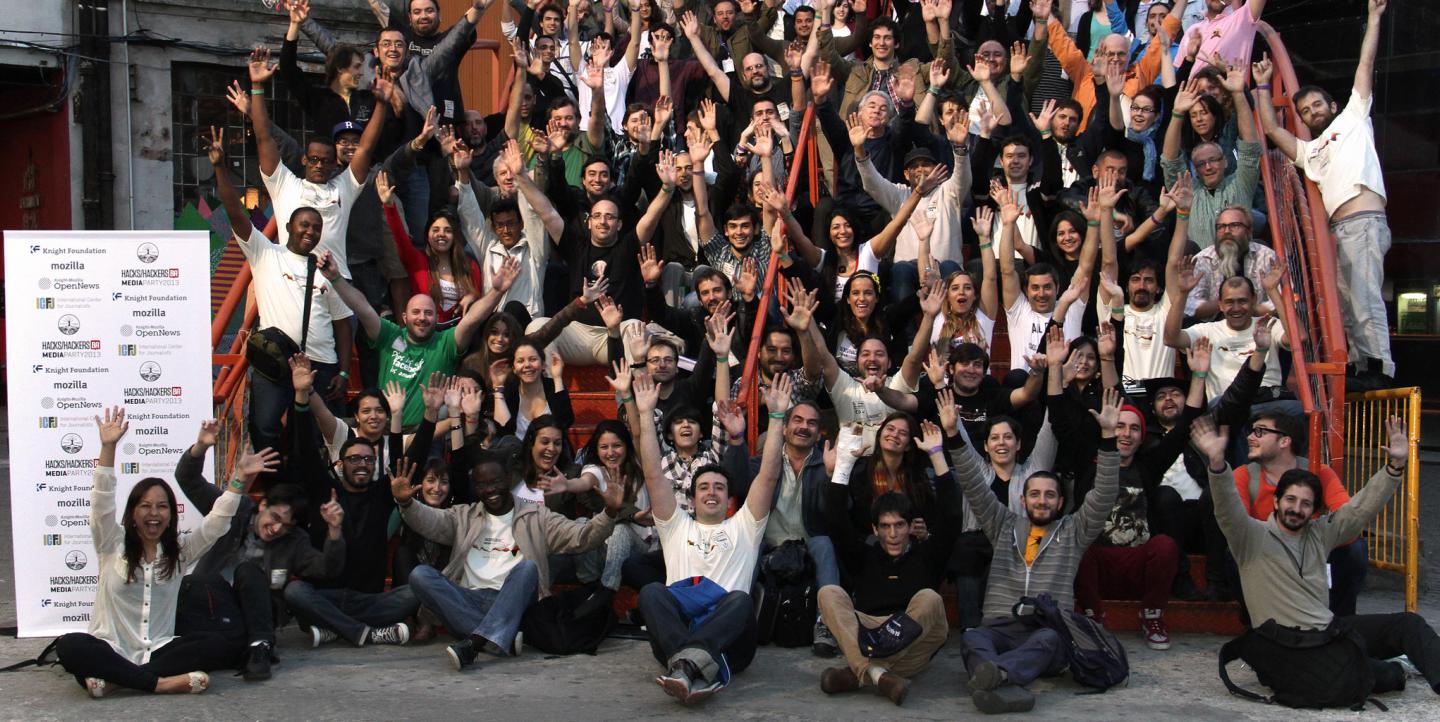Each week as part of the Knight International Media Innovators blog, the ICFJ Knight team will round up stories focused on how their fellows are making an impact in the field. Find out more about the fellows' projects by clicking here.
Hacks/Hackers Buenos Aires releases dates for its fourth annual Media Party, journalists experiment with drones and more from ICFJ Knight Fellows in this week’s roundup.
Save the date for Media Party 2015
Hacks/Hackers Buenos Aires (HHBA) announced it will host its fourth annual Media Party for journalists, technologists and civic hackers August 27-29 in Buenos Aires.
Media Party 2015, the largest conference in Latin America for news innovation, will feature 40 workshops, panels made up of 30 international digital media experts and a hackathon. Learn more about the event by clicking here.
HHBA just celebrated its four year anniversary, and the group has amassed more than 3800 members. ICFJ Knight Fellow Mariano Blejman started the HHBA chapter in 2011 and began Media Party in 2012.
Drone experimentation for journalism gets off the ground
More than 100 journalists and technologists convened in Berkeley, California to experiment with how drones can advance journalism. The event, dubbed TechRaking, allowed participants to see first hand how drones operate and learn more about the laws surrounding its use. Under current Federal Aviation Administration (FAA) regulations, it is illegal to use drones commercially in the United States.
The current FAA ban has affected how journalists can use drones to stream live events from above and see environmental changes in rural areas.
TechRaking participant Dickens Olewe is also experiencing governmental limitations in his home country of Kenya. His group at TechRaking “proposed a coalition in Nairobi, with support from Nairobi University, to challenge the country’s ban on journalists’ use of drones,” according to a write-up by one of the event’s hosts, the Center for Investigative Reporting. The News Lab at Google and Stanford University’s John S. Knight Journalism Fellowship program also sponsored the event.
Olewe is a Kenyan journalist who leads AfricaSkyCAM, which was one of the winners of the 2012 African News Innovation Challenge (ANIC). ANIC was launched by the African Media Initiative under the leadership of ICFJ Knight Fellow Justin Arenstein. AfricaSkyCAM previously used drone technology to document flooding at Lake Nakuru National Park in Nairobi.
HacksLabs Challenge 2015 announces first two winners
HacksLabs Challenge 2015, the first data journalism accelerator fund for Latin America, gave two US$10,000 grants and mentoring to Ojo Público in Perú and Cargografías 4.0 in Argentina.
Ojo Público, a digital investigative journalism outlet, will work on a web crowdsourcing application called Cuidados Intensivos for citizen journalists to monitor the quality of private health services throughout Peru. The project will help a team of journalists pinpoint areas in the country with ongoing problems and allow citizens to document complaints. Learn more about the application in Spanish by clicking here.
Cargografías will improve upon its current platform, which enables users to track politicians’ positions in government, salaries and party affiliations using an interactive timeline. Journalists can also use the tool to compare one politician to another and embed the timelines on external sites.
Fellow Mariano Blejman worked on the HacksLabs Challenge alongside the International Center for Journalists, the John S. and James L. Knight Foundation, the World Bank Institute and the Knight-Mozilla Open News program.
ANCIR trainer speaks out about consistencies creating false positives
Heinrich Böhmke, a media and legal trainer with the African Network of Centers for Investigative Reporting (ANCIR), wrote an op-ed in Opinion Nigeria about evaluating the credibility of sources. Citing the Rolling Stone story about an alleged rape of a University of Virginia student, Böhmke explains, “Contrary to common sense, when a witness repeats an accusation he has made on a prior occasion, this does not increase the credibility of his claim. That witness could be consistently lying or consistently telling the truth.”
ANCIR was founded by fellow Justin Arenstein.
Main image CC-licensed by Flickr via Ramiro Chanes.


